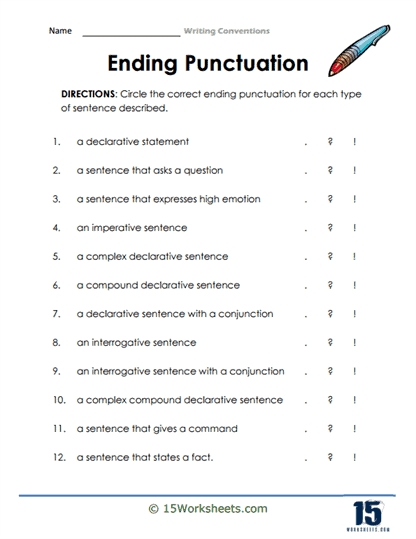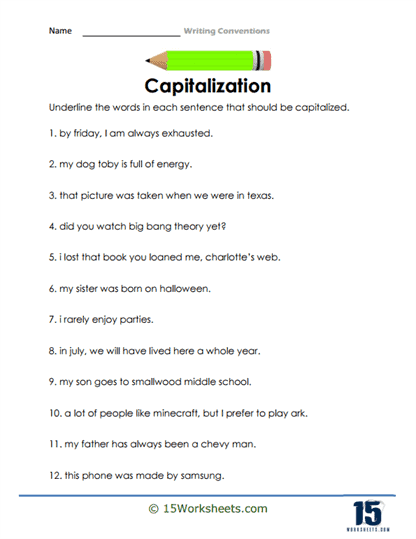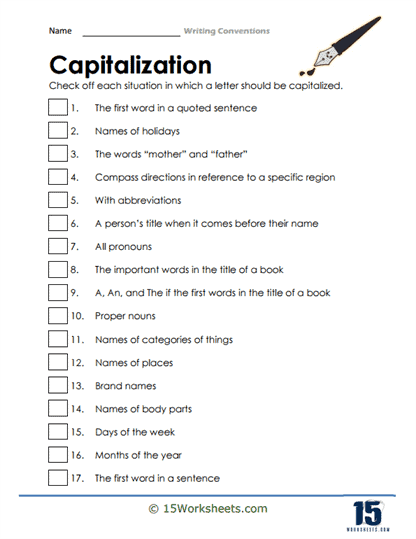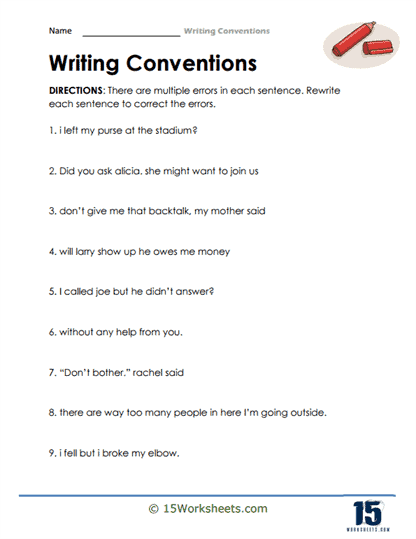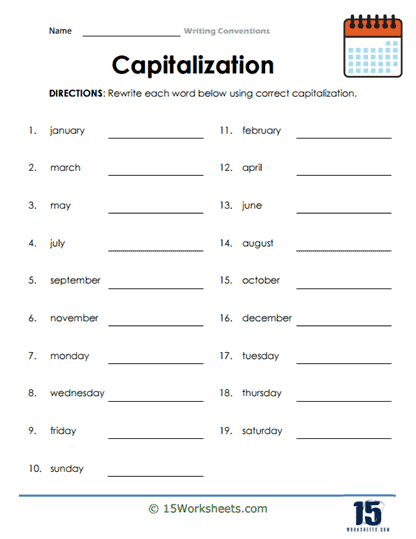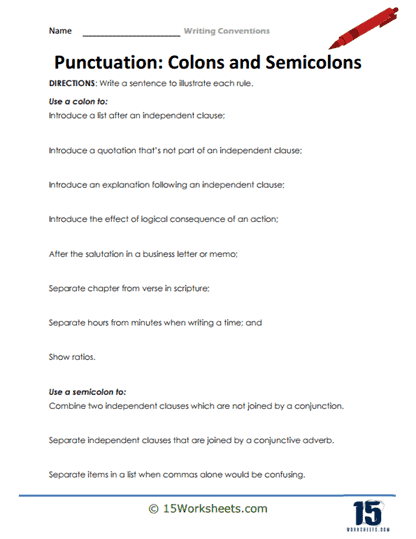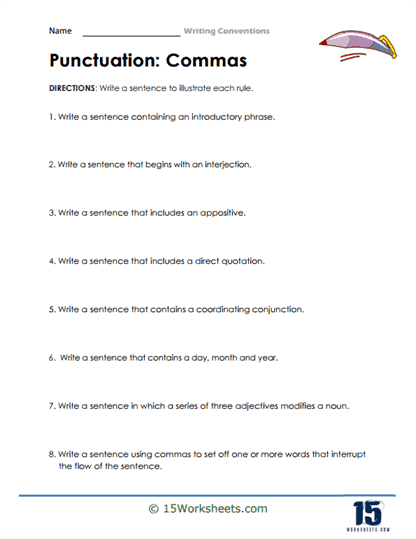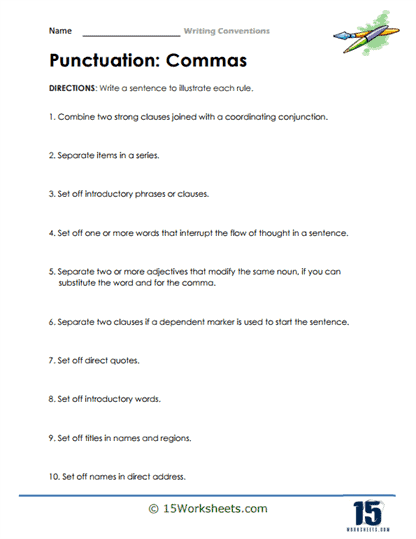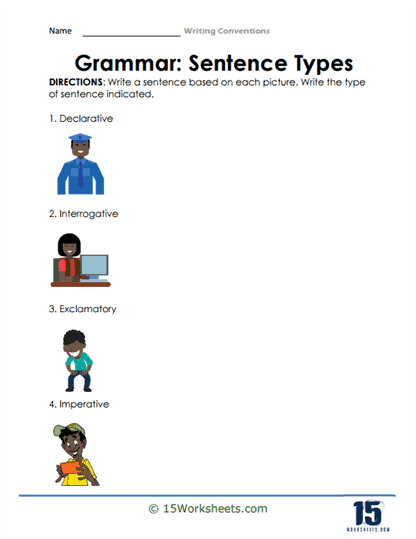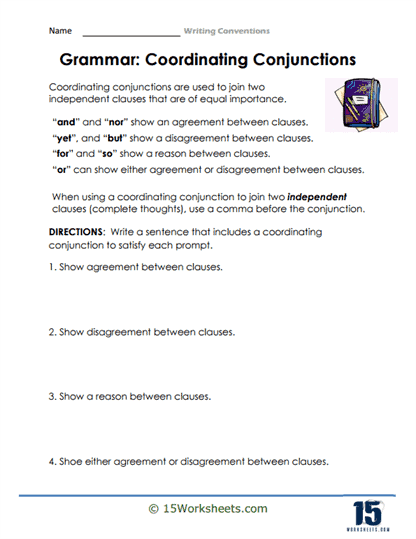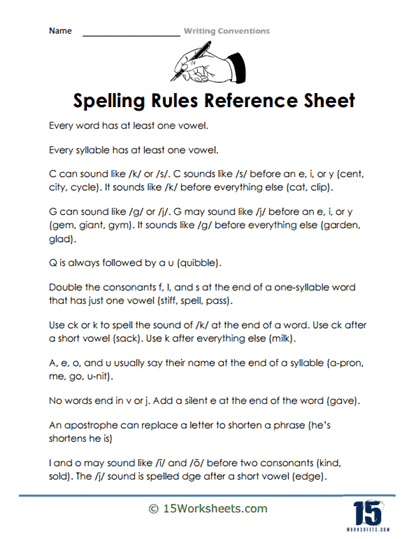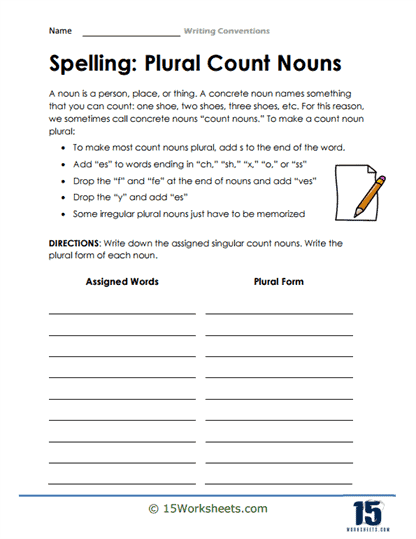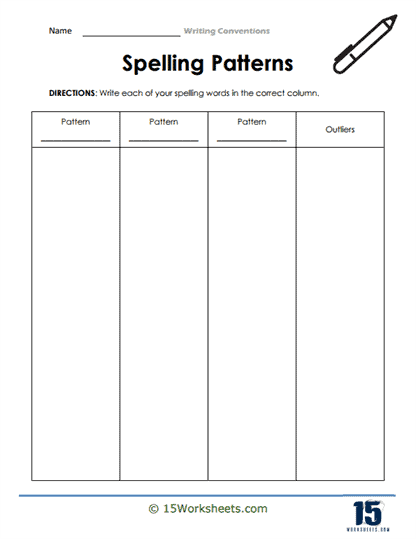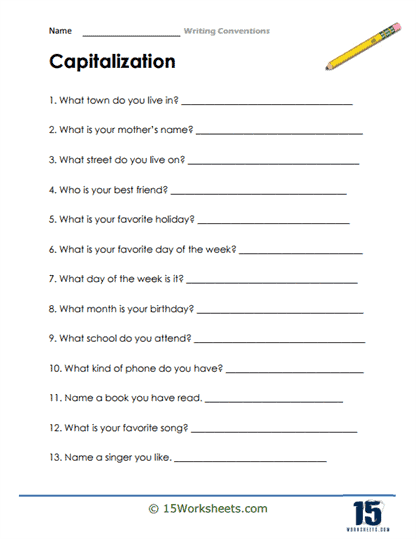Writing Conventions Worksheets
All About These 15 Worksheets
There are some rules that a student, specifically those who want to pursue different writing professions in the future, should follow. These are the conventions for writing that are used to give clarity to the context and structure of writing. Let’s learn about these conventions in detail below.
Importance of Conventions in Writing
Without conventions, no matter what you write, it will not make sense to the other person. At an early age, students are introduced to them so that when they learn the basics of English, they also learn to compose their thoughts in writing using the conventions.
Writing is nothing without conventions, and they are specific for every language. We are so used to them that they seem natural to us.
Basic Conventions for Writing
Here are some basics that should be present in all kinds of writings. These conventions must be the criteria to follow when writing or proofreading your work.
1. Spelling
It is important to write correct spellings for all the words. Many tricky words could confuse you, such as homonyms. You need to be aware of which word to use in context.
2. Punctuation
Punctuation marks include a full-stop at the end of a sentence, quotation marks to quote anything said, use of semi-colons and colons, or separating different ideas and listing items with a comma. These are necessary to make sense of what is written.
3. Grammatical Rules
All grammatical rules must be followed to the T. There is no structure to the writing if the sentence doesn’t make sense. Laws like subject-verb-object, adjectives, conjunctions, or active and passive voice change a piece’s shape.
4. Capitalization
Just like other basics, capitalizing the right words impacts the writing piece. Some common words that should be capitalized include names, proper nouns, acronyms, days, months, the first letter of the first word in a sentence or quotation marks, significant events, and names of holidays.
Conventions For Different Types Of Writings
Other than the basics, some specific rules must be used in different types of writing. These are customized according to the readers or the intention of how the writer wants to continue.
Conventions for a Letter
To write a letter, you must know that the addresses of both sender and recipient or sometimes only the recipient are required. A subject, salutation, body of the letter, and a sign-off by the sender are the conventions of a typical letter.
Conventions for a Story
A story must have a plot, setting, themes, characters, conflict, and resolution of the conflict for it to be considered a narrative.
Conventions for an Argumentative Essay
Conventions for writing argumentative essays are to start with the topic introduction, add a thesis statement, make claims, support them with evidence such as statistical data, laws of nature, and logic, add a rebuttal, and conclude the essay. Since the essay is a type of persuasive writing, it must present a clear point of view, and the language used should be convincing.
Conventions For Formal Writings
Formal writings such as emails, business proposals, articles, or speeches, must follow some conventions. Use a formal tone of writing, and no jokes are needed. The text must not contain contractions of words, nicknames, or slang.

